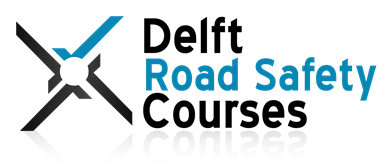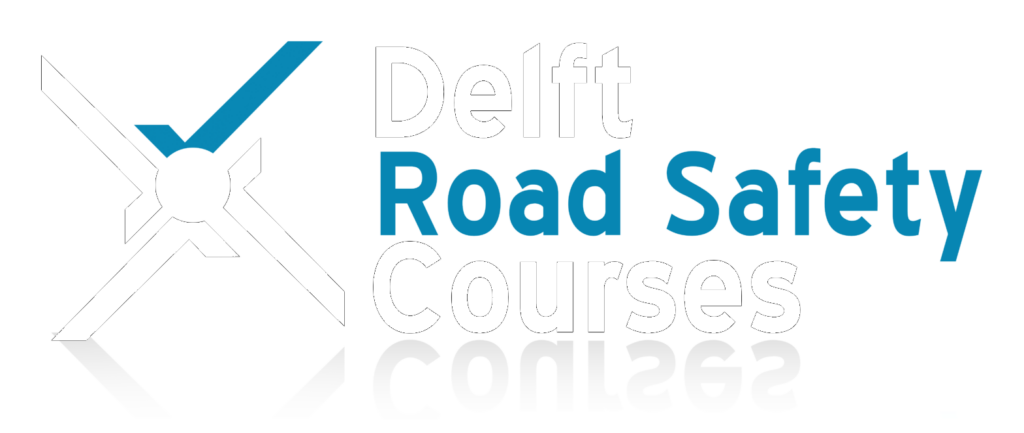DRSC Alumni Course: Pro-active Road Safety Assessment
Pro-active Road Safety Assessment
About the Course
Carrying out a Road Safety Impact Assessment and Road Safety Audit can have many benefits, ranging from improved traffic flow, contribution to climate goals, and decreased societal healthcare costs to increased economic revenues. Individuals, citizens, economic operators, cities and society as a whole benefit from improved use of the road.
This training course is developed by Delft Road Safety Courses (DRSC) and is open exclusively to DRSC alumni. It is aimed at participants who are involved in the preparation and development of infrastructure projects, policies, campaigns, and/or plans where it is to understand the audit and assessment process and have insight into the role that they play in improving road safety.
It builds on concepts introduced in the Delft Road Safety Course around Road Safety Impact Assessment and Road Safety Audit and is intended to deepen participants’ knowledge and application of pro-active road safety assessments.
Course details
This course has now closed.
- 12 October - 7 December 2022
- Five bi-weekly sessions
- Online via MS Teams
- 1pm – 4pm CET
- 150
- Exclusive to DRSC alumni
Structure
This training brings together key expertise on how to carry out a Road Safety Impact Assessment as the first step in the design process followed by an introduction to the four steps of a Road Safety Audit.
Each session will be led by experienced trainers and guest speakers to engage participants in plenary discussions and group exercises, including a practical case study derived from the European Directive 2019/1936 on Road Infrastructure Safety Management (RISM-II).
In between the sessions, participants will be provided with video materials, reading, and light homework exercises to reinforce their learning.
Session 1
Overview course and application of RISM-II
Session 2
Phase 1: Preliminary design
Session 3
Phase 2: Detailed design
Session 4
Phase 3: Pre-opening & Phase 4: Early operation
Session 5
Use of knowledge
Approach
Evidence based
We use methodologies and materials that are evidence-based and scientifically sound – supporting a holistic approach to data collection, problem analysis, research and innovation, monitoring and evaluation.
Leading experts
Our courses are delivered by world leading researchers and professionals with experience of working in and with low and middle income countries to improve road safety and sustainable mobility.
Peer learning
Our learning environment encourages students to exchange knowledge and share experiences. This helps in identifying creative, locally relevant solutions to common challenges and issues.
Tailored for LMICs
We base our learning on the Safe System Approach and how this can be tailored and adapted to local contexts, with a focus on the specific challenges faced by low and middle income countries.
Train the trainer
We support local development and the governance of road safety management by developing capacity amongst practitioners and professionals who will return home and share their learning with others.
What will you learn?
In this training, participants will learn to use Road Safety Impact Assessment and the 4 stages of a Road Safety Audit. It will include an introduction to economic concepts and road safety methods.
After completing this training participants will:
- Understand the relationship between road design and safety hazards
- Understand the characteristics and benefits of a systematic application of an audit in the 4 audit stages
- Know how the results of an audit can be used to improve road design
Note: this course will not lead to a certification as a road safety auditor.
This course is intended to expand participants’ knowledge of the assessment process. Its aim is to expand the use of assessments in LMICs and promote their use as a standard procedure for road infrastructure development.
Lecturers and Trainers
Course leadership
Lecturers

Patrick Broeren
ARCADIS The Netherlands

Prof. Andreas Vesper
HTW Dresden, Germany

Gourab Sil
Indian Institute of Technology Indore

Dr. Attila Borsos
University of Győr, Hungary

Bandhan Bandhu Majumdar
Birla Institute of Technology & Science, India

Ing. Magnus Lincoln Quarshie
Delin Consult Limited, Ghana


